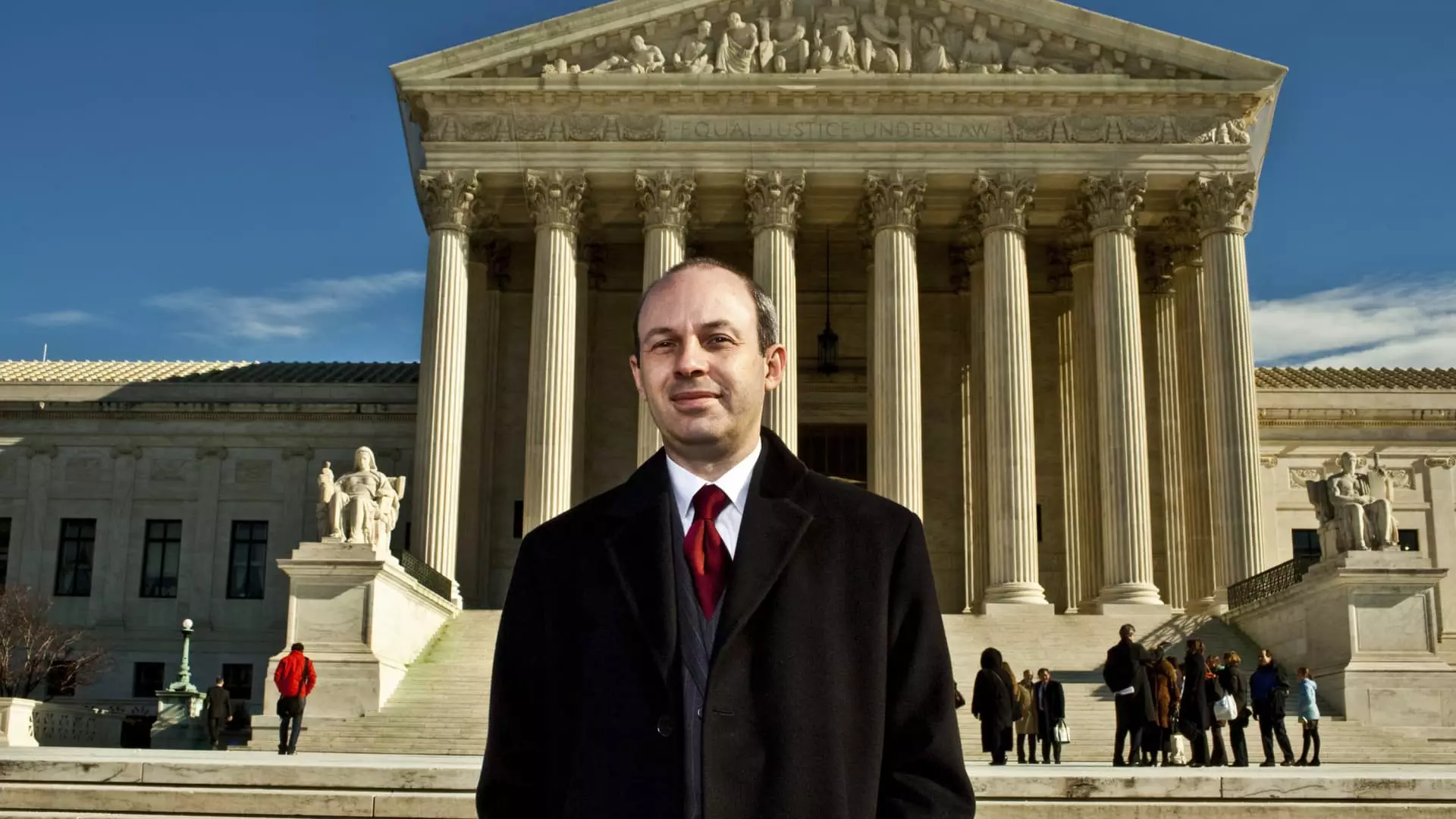The world of high-stakes poker has long captivated the imagination, not just for its glamour and unpredictability but also for the intricate legal and ethical dilemmas it often presents. Recently, the gambling narrative took a dramatic turn as Tom Goldstein, a prominent Supreme Court attorney and publisher of SCOTUSblog, found himself at the heart of a significant legal debacle. A federal judge’s decision to detain him without bail based on accusations of serious flight risk illuminates the precarious balance between legal prestige and criminal accountability.
The Criminal Case Unveiled
Goldstein’s allegations center on serious federal tax evasion charges that came to light in January. Prosecutors argue that Goldstein improperly failed to declare substantial poker winnings and misappropriated funds from his law firm to cover gambling debts. The seriousness of these allegations cannot be overstated; they suggest willful negligence amounting to over $5.3 million in unpaid taxes. Such a large sum, tied directly to the gambling world, starkly contrasts Goldstein’s esteemed position in legal circles; it raises questions not only about his personal ethics but also about the integrity of the legal profession as a whole.
Emerging from the judicial proceedings, Goldstein’s actions have led to suspicions of deceit and manipulation. Prosecutors presented a compelling case thatGoldstein, upon knowing he was under federal scrutiny, engaged in questionable conduct designed to influence potential witnesses. The implications of such actions are grave, as they can undermine the very foundations of justice and fair trial that the legal system seeks to uphold.
Adding another layer of complexity to this case is Goldstein’s alleged control over cryptocurrency wallets, which he reportedly failed to disclose to Pretrial Services. Within a short timeframe, these wallets received over $8 million, prompting prosecutors to argue that these funds could be instrumental in facilitating his flight from justice or even tampering with the investigation. The specific mention of more than $6 million in cryptocurrency transferred within days of his indictment indicates a rapid and suspicious maneuvering of assets that failed to comply with court directives.
The use of cryptocurrency—a system often touted for its anonymity and decentralized nature—serves as a double-edged sword. While it provides a means for legitimate financial transactions, it also creates an avenue for illicit activities that can escape the watchful eyes of regulators. Goldstein’s case serves as a cautionary tale of how modern financial tools can imperil even the most distinguished careers when misused.
Faced with evidence pointing towards an alarming disregard for legal constraints, Chief Magistrate Judge Timothy Sullivan ruled that Goldstein’s release conditions could not guarantee his compliance with the law. Sullivan’s statement declaring “clear and convincing evidence” of violations underscores the judiciary’s firm stance against repeat offenders and those attempting to evade justice. For Goldstein, the gravity of this ruling signifies a loss of freedom and the harsh reality of facing the consequences of his actions.
Legal experts note that such a ruling sets a precedent, reminding public figures of the unacceptable nature of manipulating the system for personal gain. The court’s stringent measures reflect society’s expectations that those in positions of influence must adhere strictly to ethical standards, particularly when facing criminal charges.
The Broader Implication for Legal Professionals
Goldstein’s ongoing plight raises salient questions about the responsibilities of legal professionals in managing their financial affairs transparently and lawfully. As one of the most prolific litigators before the Supreme Court, his fall from grace serves as a pivotal reminder that even the most esteemed individuals cannot evade accountability. The legal profession must prioritize integrity, understanding that deviations from ethical norms risk not only individual careers but also public trust in the legal system.
Tom Goldstein’s situation illustrates the complexities inherent in navigating a life intertwined with both high-stakes gambling and the highest echelons of the legal profession. As his case unfolds, it serves as a relevant case study for legal professionals and the public alike, prompting reflections on the importance of accountability, ethics, and the potential pitfalls of financial impropriety in a world where the stakes are exceedingly high.


Leave a Reply